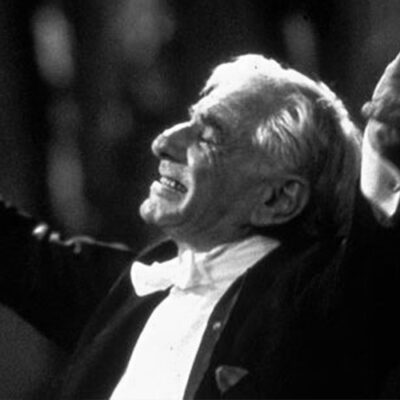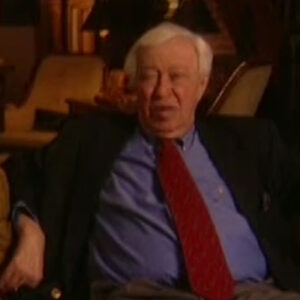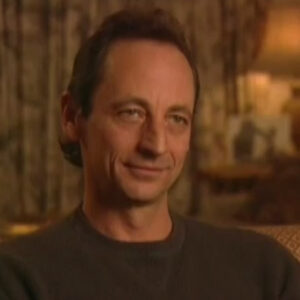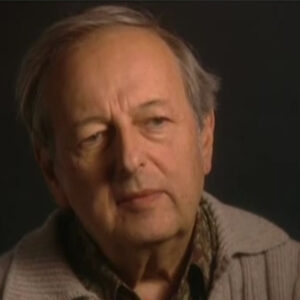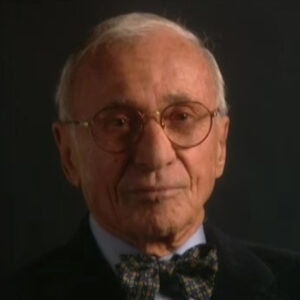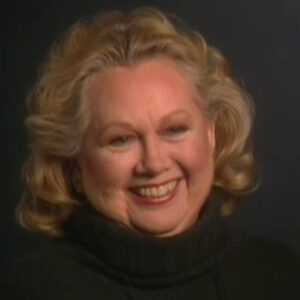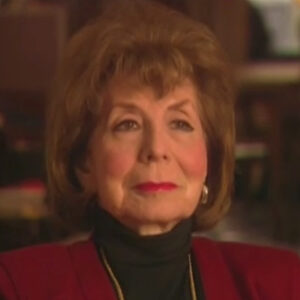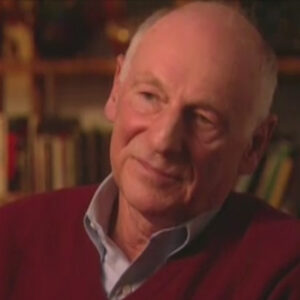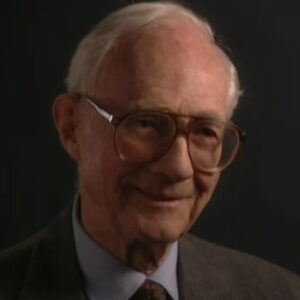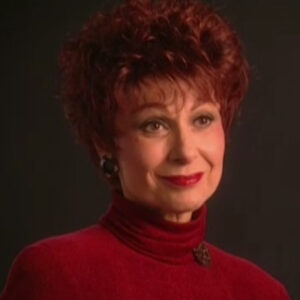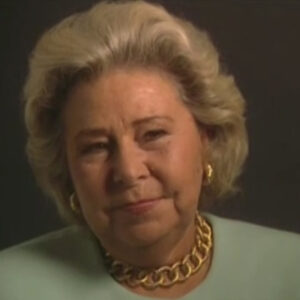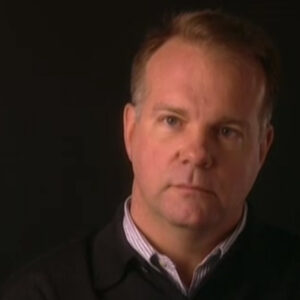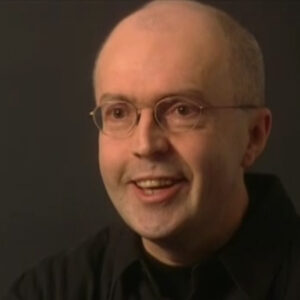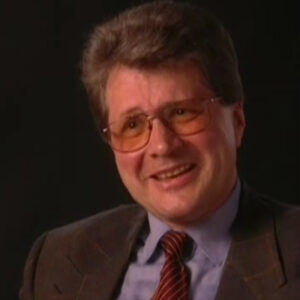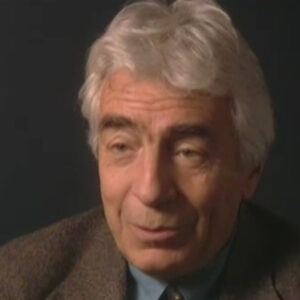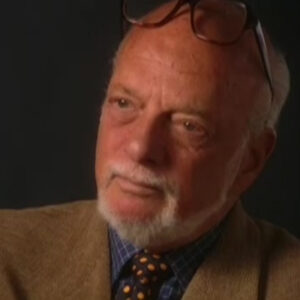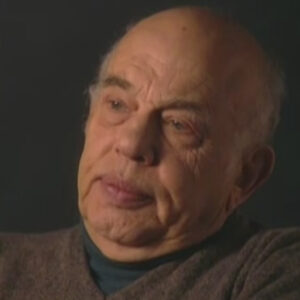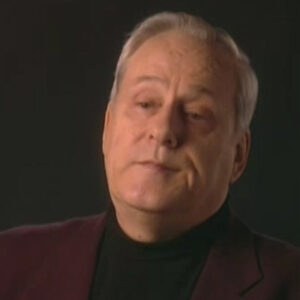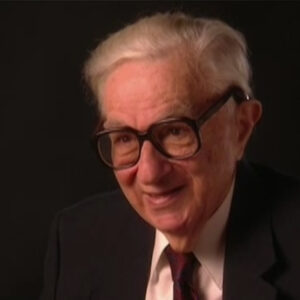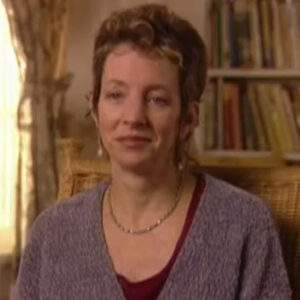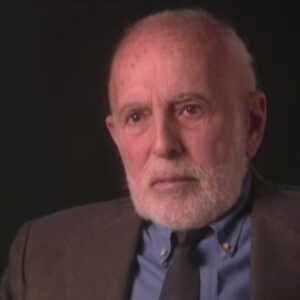Speaker Let’s start at the beginning, when when did you first meet Lenny? Did you meet him when he came in 1948?
Speaker Yes. No, not 48. No, no, no, no. I was a witness. Choirboys. There was singing on the music side. He conducted the concert.
Speaker What do you remember about what you heard about his trip here in 1940?
Speaker I remember I remember very well that agency feeling always, always also that was at the best Bahnhof and said, please conduct the same piece as Herbert from Carry On because we want to have the same from you. And as he told me, he was very angry about this. But from this time on, he was in Vienna or with Bandstand or Korean Bandstand or carry on or carry on or Bandstand. And I think he hates this. It was not his his kind of music. So in the very last years? No, not in the very last year and the very last month, they began to have a very good connection.
Speaker Was the. So you’re saying there was a perceived rivalry with Karhan? Yes. But do you think it wasn’t really in his heart?
Speaker It was not done by Len. It was done by by the audiences, by the critics, by the public, the same as Furtwangler and Toscanini. I don’t know if they hated it. It was not in Bernstein’s idea to have it rival.
Speaker How that caravan, was it in his way?
Speaker No, not because he in his mind, he was the greatest. So that couldn’t be something as a rival. But in very last years, when the band was very, very old and very, very sick, Corian, he he had a very good connection with him. And the last plan they had were to go to Japan together with the Vienna Philharmonic. It doesn’t come to this. It was too late, but it would be exciting to have these concerts, one of Caravana.
Speaker And that’s interesting that they were planning that. Yes, it was planned. You told me a story. You might as well just continue on the current and the story of money going to see him conduct. How often did Lenny do you know Sikhi?
Speaker Oh, I remember only two times. One time he was in Vienna and doing Rosenkavalier for recordings, and that is the festival Karen was doing. Fidelio and Bensten takes one day to go to Salzburg to see this Fidelio. He was the sensational Defitelio of Korea. And the other time I know it was in October, the last October when Karen was alive. I don’t know. The year kind was in Vienna was the Berlin Philharmonic. And Bernstein was here planning his next date, this very compressed last year, which wasn’t done afterwards.
Speaker And he was in concert with about Bashan back and he was very impressed. But in the intermission, he was going to us to have dinner, but he was there and he speaks to Korean and he said, I’m so impressed, I have to go out. I can’t hear the second part. And he was coming to us and said I was so impressed. But also I was very hungry. So that was the last day they saw us. So so I saw them. But also Korean was very happy about this last speaking. He said, oh, he’s a nice man. He’s impressed on my Schoenberg. At least they were friendly together.
Speaker Do you think that the the rivalry, the perceived rivalry existed primarily because they were both very flamboyant, glamorous figures or because they both claimed the honor to some degree as attention to it?
Speaker I think that the second, because they it was it was not only Vienna, it was Europe, Korea, and said to Europe, that’s my section. And then the was coming and said, no way. And he was such a great success. So that’s not in the sense of Korean. That may be a little bit the background of whatever was going on, but it’s not so interesting. I mean, the Vienna Philharmonic, they played in one year with Korean spent bandstand and they loved all three of them.
Speaker Let’s talk let’s go to now to 1966, when Lenny came back after many years absence to Vienna. And what happened? Did you meet him then?
Speaker I saw his first rehearsal for first off, it was done at the State Opera, at the orchestra. We say he did exactly the same as on. He first had one half hour, only the trombones and trumpets for the very difficult things of the first part. And after this half hour, the other Philharmonic’s state or orchestra members are coming in and said, what’s going on? And they said he’s OK. And then was the first real rehearsal. And from this moment on, we we met nearly every time.
Speaker What was the anticipation? What had the Philharmonic anticipated about Lenny when he came in 66? They’re looking forward to it with a skeptical first.
Speaker First it was not so. It’s a first. It was the time of the Korean in the state opera. So they had to have a new hero. And the new director Hilbert said, I will give you a new hearing. It will be Bernsten, sort of a little bit skeptical, but also very hopeful. And as you know, with Sponged and it took 10 minutes and then there was only enthusiastic things for Feedstuff. There was a little bit more differences in in Rosenkavalier first because the pianist thought the playing Rosenkavalier better than everyone. And Bernstein said, You have to learn my Rosenkavalier. So there was a little bit I’ve never wanted to there were no nerves at the first rehearsals.
Speaker What was the difference between the Viennese and Bernstein’s Rosenkavalier?
Speaker Cold, it’s hard to see.
Speaker Ben Transposon was more exciting. That’s the only thing I could say in Vienna. It’s not routine, but it’s it’s done in a certain Viennese way. I mean, it never it never came to it, but a New Year’s concert with him was planned. So it I think when it went, it had been it know, one of the voices were heard like before. And it’s the same with the drums and covariates. It’s not traditional, but very, very exciting.
Speaker Can you be a little more specific about what you mean when you say not traditional?
Speaker Oh, he he he did a lot of Ricciardone this. He did Tempest’s you never heard of before. He once for instance, he was very, very harrying in the in the forkball and in the in the in the symphonic thing. And Desertec he you never have heard it so fast and so exact. But he was he was trying to do it more ecstatic, more not so sort of what you call modern art and with your knees. And so it was like like a fresh painting. And for us it’s an old painting and sex.
Speaker It’s very nice. I want to go back to Foster. Yes.
Speaker I was, as I understand it, an incredibly exciting performance. Yes, it was.
Speaker If you could talk about that night and the audience reaction and the reaction, the critics, the reaction, the critics reaction, I remember very well.
Speaker We were very, very pleased for this, but also because of Zeffirelli and of of of which that is kind of the whole cast. I mean, it was a very, very good performance, not only from bands that I remember is it is first of as a you know, it’s a masterpiece and it’s not so often done and it’s not so popular. And it was incredibly light and very, very full of humor. And the last thing these two totally Monday, Paula, was standing in full light. And it was very, very impressive to see how it’s a long time ago. But we have it on record.
Speaker What happened when the performance was over? The audience.
Speaker I only could see they cried and then they they said, I don’t know how long they are doing the applause because I have to go to to to to my first little one.
Speaker Critics. I know. So you just. Yes. Hello. Forty eight curtain calls and the audience applauded for over half an hour.
Speaker I maybe, maybe, maybe.
Speaker I remember another thing you just told me that I ha 40 Broadway curtain calls. There were forty eight curtain call.
Speaker So if you remember. So it must be as though they’ve had 48 curtain calls, half an hour. Applause And I was to be in the newspaper and have to say the first Tumnus about it.
Speaker I think one of the critics.
Speaker Rate of growth climb. Yes, I think he wrote that it was a couple for comparable production of Farstad and been scenes of the already legendary performances under Toscanini, which is pretty high praise. Yes, that’s it. That’s it. Mm hmm.
Speaker And he didn’t so much Oprah. I mean, bandstands. He was very fresh about all these things he just before. I think he only did Na’ama with the CARDOZ.
Speaker He didn’t do more. The media. Media with Caras. Yeah. Yeah. And enfold stuff. He wasn’t very, very often into opera. We did a few more, but I think false stuff. He did come in and he did Fidelia. Yes, but but not before.
Speaker And he didn’t he didn’t do that considering the length of his career. He only did about seven. Yes. Which is very surprising. Can you actually talk about that?
Speaker Why you think he didn’t do more opera in the last I remember in the last days he wants to do Tosca. I don’t know why, but I think it was it was on the one time because he was doing a composer of operas on the other side because he was not very interested in doing work with such a lot of people. You know, in opera you have not only the orchestra, you have not only two or three soloists. We have a lot of soloists, little one, and they all have to be very good to have to be like Bernstein wanted. I think it was not his his fault. He wasn’t very, very interested.
Speaker And he was he had tremendous theatricality. Yes.
Speaker But in songs in Mahler’s symphonies, there is enough automatic. You don’t need the stage and you don’t you don’t need to decide that you don’t need a producer. I mean, now when you ask if one had said to him he also should produce it, maybe are more interested because he wants to do everything about. I remember when he was doing his his TV productions, he always did also the producing I mean, not producing, producing, directing. So he wrote it, he said, where is the camera, how should it be in in sometimes. Oh yes, in the music. Fine. When he did his Brahms films he was very interested how it works. Maybe he.
Speaker Yeah, I think that’s a very interesting point. If he could have staged the whole thing then he would do this very.
Speaker I think so I wonder why nobody asked him to do that.
Speaker Everybody asks him to do anything. And it was too much, too much for him. I think he lost his time for four four compositions with doing more concerts, more TV production. So he had to do too much in his not so long ago.
Speaker Did he speak to you about that often?
Speaker Often privately, because he you know, he was a very depressed man in in in his privacy. He was not so happy and so funny and so kissing when he was alone. And he was very I think so he was very more interested to have energy for composing and for composing. Well, so he sometimes I remember once we said to him in Vienna, we say, Kapellmeister music. That’s music done by a conductor. Gustav Mahler is real Kapellmeister music. And he was not very, very happy with his characterisation. But when we had a rehearsal by a piece of him, he always said, you remember this poem, you remember that Puccini, you remember where have this from? And he don’t he don’t was he wasn’t so happy with this. I think he had a lot of problems in his life.
Speaker What do you know about those problems? And can you tell? More than. No, when you say that he was and what can you remember any specific conversations when he was not being beheaded? Many times that you feel that you put that which that would be revealing about him, not in anything that would make you feel awkward or that you’re stepping over a line that would would help us understand it better.
Speaker Once I remember he wants to see the Mozart piano in the multitalented sourcebook. And I arranged that he’s coming to this Mozart’s birth house and naturally was not alone. There was a TV team and a lot of people. And after 10 minutes playing, he said, so please go out. And then he I left the tape recorder and went out also. And he was there for one hour or so. And afterwards he was coming out crying and deep emotion. And I went in the room and there was no tape in my record. And after hours he sent me this tape. And then I have, let’s say, 30 minutes or so. First he played Mozart, then he played on things, and then he was mixing it. And then it was a very, very astonishing, astonishing thing coming out. Then it was over. Then I had the tape and then he said, Franz, if you will hear this, it’s only for you if you will give it to him, you know, any any way to talk to anyone, I will kill you. But I have it on tape. And nobody everyone nobody has heard. Not his family, not my family. But I mean, as a musician, when you heard this this mixing between genius and Bernstine, you feel what’s going on in him and how he wants to be also a genius and how he knows that he was not Mozart. Maybe this was depressing to him a little bit. So incredibly moving story, I didn’t know that’s true, nobody knows because only I have the tape and Harry knows the story, but you haven’t heard the tape.
Speaker So it makes me feel sad for Lenny that he didn’t seem to have complete confidence in his own gifts.
Speaker What do you think? How do you think he felt about himself as a composer when you just said he was? How do you think he or.
Speaker He was very, very he was very, very off. So now it’s OK. It’s over with my English. No, he he loves his music. And he but but not not only his music. I mean, I think he he he was so clear and so great that he he was very, very sad sometimes about his not so good compositions and. He wasn’t so happy about that story, OK, handed over to the wall or whatever.
Speaker He tried to throw the book and he invested more energy in these things or Chimayo or something like that, the fans that were compositions of my heart and he always wants to to be seen as a serious composer. And the best moments as a serious composer were when he conducting Fidelio. Then he recomposed, as you said, and that Fidelia was a masterpiece and he was old and and, uh, clever enough to know this that he never did Fidelia.
Speaker You talked earlier about how, Lenny, when he would conduct Mahler, Beethoven, whatever, that he would become that composer. Can you talk a little bit about that?
Speaker What should I talk about it? Well, just tell me what you were telling me.
Speaker It was it was an investor when he did Fidelia it out on the wing and in my in my life, it was the very best tactical operating. I never will forget one tone of this. What he did in this evening and at the last rehearsals, he was nearly nearly had to say. He was very nervous because he said, see, there’s no no note here, there is no fortissimo, but there must be a fortissimo. Where is it? He just wanted to see it in the note. He found it, didn’t he can’t find it because there was nothing in it then. And he was just wanted to know what’s going on. And afterwards, I mean, you said fine stuff. And the audience after our stuff, they were into it and statistical. But the very little audience there, just nine other people in this little theater after Defitelio, they all were crying for glitzier for half an hour. And nobody after this evening could hear Fidelia more. And Bernsten, I remember he said to everyone, you were not in the theater, in the theater. They were the French officers of Napoleone. As I said, he had them behind me when I’m conducting. So really, he wants his thoughts. He thought, is Beethoven doing Fidelio? Because this was in this time for the first time. And I mean, often he did jokes or something like that, but that was very, very serious. And after this, Fidelia, I remember there was no opportunity to go out to speak to dying or whatever.
Speaker Everyone was going away and wants to be alone or the barnstead. That was a very quiet evening.
Speaker It’s a wonderful story that you heard Napoleon’s soldiers there. He feels it right. How important do you think it was to hear Berstein live? How important was his live performance to his interpretation?
Speaker Very important, very important. I mean, first of all, the musicians were doing it because he was so animating or whatever and also for the audience, because as every good conductor, he he showed what’s going on. And and it’s the same with everyone. It’s sad.
Speaker But if you if you had some some memories of some concerts with him, you can’t you can’t estimate. I mean, Mahler fifth, I don’t want to hear any more from this time on.
Speaker And in in the last years, it was it was not so the concerts but the rehearsals, they were very interesting and very humorous. And the best were the when he was coming to Vienna for for doing a new period. At the first rehearsal, he just take the orchestra and said, let me give me your tone and did it for ten minutes. Nothing just to hear Papa, Papa, Papa, Papa. Because in Vienna they are a little bit crazy. They don’t want to tune very precisely and he don’t want to say, please do it. So he did ten minutes only this and he said, Oh marvelous. Oh marvelous. And he did it until the moment when they are very precise. And then he began to rehearse. He was not every time a happy with the orchestra.
Speaker It was it was a friendship as a friendship, not not always, only happy. Sometimes he hated them and said we have to begin from the very beginning. And he had so loved so, so, so little time.
Speaker So.
Speaker But from the back to concerns, let’s talk about Lenny and Marla, Lenny and Marla.
Speaker Yes, Mike. Is it true that when Larry came in 66, that Marla had been not performed very often with the Philharmonic since?
Speaker That’s true. That’s true. I mean, give me a complete sentence, because I’m sure what I’d like to do is to get the story. Yes, yes.
Speaker Yes, no.
Speaker After the World War Two, there was, let’s say, two years. Marla was done by every orchestra, by every conductor just because he wasn’t allowed to be played before then. They said, no, we don’t want to play Mahler’s sixth. We don’t want to play play Mahler second. And he wasn’t forgotten, but he wasn’t estimated. Not in the Philharmonic concert. Not in the concert of the symphonic. No. But then we heard of this very first Mahler edition Bandstand did in New York. And when he came, it’s real. He he was the first who said you have to play it. It’s your music. It’s the music of the music. Fine. And the Vienna Philharmonic. And he did what Bruno Vida couldn’t do because Boulevard was too old and he just had two or three concerts after the World War. And so he he invented Mahler for the Philharmonic. It’s it’s a long time ago now. They are playing it like Shostakovich or everything. But it was the the the importance of of Palestine.
Speaker Talk to me about the Mozart Piano Concerto, really conducted from formed as a soloist and conducted from.
Speaker It was a very romantic and very intimate Viennese thing, and I think it did not lead to everything he just did in Vienna with it. Music playing Mozart often. No, no, no, no, no. He did it in combination with the Philharmonics and.
Speaker He was so he was so, so impressed by the very kindness and by the I mean, he said other things, then he prayed. He spoke about classic Mozart, and then he played the romantic Mozart.
Speaker But he was so happy with the orchestra, which wasn’t an orchestra, but all old friends of him. And he was doing it very, very seldom. I think for two times or three times, not more. And he was very proud of his or sort of his playing and his best years as a pianist oboe when he was coming to Vienna. So he had a lot of rehearsing and he was very, very. Uh.
Speaker Anger about force notes and so on and so but it was the same lack Rosenkavalier, it was not knees, it was not not our style. Interpret it, interpret it. It was not our Australian interpretation of Mozart, but it was so. So so we say Ozanian goes so in one term that it was literally and could. It’s hard to speak about Maltsev, it’s hard to speak about it.
Speaker Did he ever speak to you about Voller and his identification with him?
Speaker We had we had the idea of doing a book. Unfortunately, it hasn’t worked. When he when he produced the disks in Vienna, we always had a tape running with his explanations, which is the and we had to plan to to make a book about this idea of what’s going on in Mardas Symphonies. And we spoke a lot about Morila and about about the music. Fine, because it’s the same between big Brahms and they had the.
Speaker Tomb of the Philharmonics, the the sense of the dimensions of the universe sequencer in his in her years in his is in his is long before composing, and it was the only place where it was the idea, ideal surroundings and a lot of of of problems in interpretations.
Speaker This Mahler symphonies we have in another room you have not in Vienna because then you know the right balance between the very broad a brass section and the string section. It’s no problem in this part because it’s composed for this heart. And therefore he was very he never did it in another in Vienna. In another, he just was going for Beethoven’s Ninth in the concert halls. But with the murders, he just stayed in the music.
Speaker But at the home of what is your highlight from your memory, your highlight memory of something which is the highlight, I think the eight eight.
Speaker No, no. The highlight was the fifth because of a semi symphony event.
Speaker He I was always with him in the rehearsals. And I remember when his doing when he was doing the first time, the fifth in Vienna, those in the first kiss and the first thing he wants said very, very not for the fortissimo but Forte Fortissimo. He got it into her sleep and you know, the Konstantine at midday in on a Sunday. And when he came to this very point where he sprang out and this 40 fortissimo, there was a little earthquake in Vienna and the organ was coming about two to two going out in the auditorium. The auditorium went out. Some of the musicians stopped playing on the bench and said, what’s going on? It’s correct.
Speaker I said, and it was an earthquake. So he wants earthquake. He and then there was a little intermission. And then he began from the beginning and there was no earthquake.
Speaker But it was the most impressive. You know, everyone was every every symphony was a great impression. The second, for instance, was a very, very great. Work with the workers.
Speaker I’m really just curious about this. Have you heard of conductor? Do you think demand better than.
Speaker If you if you excuse me, I hate this this question, because I would like to ask if it’s really I’m just curious. I can’t see it. I can’t see it.
Speaker I can’t see it because, I mean, there are some very great conductors and it very well Mahler.
Speaker So I can’t say this was the greatest and even very interesting piece about the eighth, because I think in the piece you indicated that if we’re still at that time, maybe some people who remembered Mahler actually premiering the piece and conducting.
Speaker Yes, yes. Yes. In Vienna.
Speaker And the anticipation about about Lenny’s doing this where we stand behind you, of course, quite rhapsodic about it.
Speaker What what what was so incredible about that particular everyone told me he not is not only he’s very authentic, but he seems to be a little bit like Moraldo in conducting in being in contact with the choirs and so on. So if you want me to say that he is he was the ideal Mahler interpreter, I said yes.
Speaker So not only the from the first to the last symphonies, but I don’t want to say he’s the only one. There are a lot of very great conductors and some I remember also one great symphony, I think the sixth, the sixth. And Baccarin was also very great movement.
Speaker I was just curious whether it first of all, this letter that he wrote to you about your paper. Yes. What prompted that? That.
Speaker We had it should be leered our newspaper, and I asked him to to give us a. A donation, he did two things first, he wrote this letter and then he he gave us the manuscript of the book and we had the world premiere of a little piece of the book in Kenya. And afterwards, there was a lot of fun with this letter because he was very friendly to our chancellor called Kapono Kreisky, and he was very familiar to one of our ministers called Sandroff. And I remember and they they were not very close together when the book was coming out with this letter where the letter said Everyone’s friends and everyone should be brother to brother. We had and presentation of this book and he said, Minister Bush, would you please read my letter to France and and understand and see in the book. And he had to read it in the public and to see through the kaiseki.
Speaker And he was very, very astonished.
Speaker And it was done for just for not for fun for saying a brother’s hands and rose and he he Bernsten did this as a not as a joke but but as a trial. He tried to to bring them together for a next time. He had a lot of such things in general. I mean, not only.
Speaker Did he ever talk to you about any conflicts he felt about performing in Vienna, given that he was a Jew?
Speaker No, no, no, no, because, you know, the first Vienna Philharmonic man, Helmut, will be invited in fill to Bernsten Festival was a pronounced Nazi and he didn’t own festival for Burnstone. So he said it’s a parody Nazi. No, he’d never give up hope. This. No, it was over. That’s a good answer.
Speaker How do you think Lennie’s what a mess, especially Weismuller.
Speaker What do you think is his greatest strength in.
Speaker For me, Schoeman, for instance, because, you know, there are not so often play the human sinfulness and he did it very, very interesting and very charming. I mean, he did Beethoven, he did Brahms as every as every conductor. But the Schumann symphonies for me are very interesting, very intensive and very what we call effect for.
Speaker So this was a good as I said it for for for for Mahler. He did the same for Schumann in Vienna, for instance. The operas are very beautiful and it’s a great loss that it happens so much of them.
Speaker So there are some I want to hear from him once, you know, many have lost of critics in the United States. Yes. Many you of his music want things out of his conductor’s hat. What was the response in Vienna? Was it makes or was it overwhelmingly in his favor? And how would you explain the difference between the execution of the.
Speaker Of when he was coming to Vienna, the the very old critics just died, so there was a very young generation writing that was.
Speaker Everyone feels the love between the orchestra and and and there was some there were some they said, wait, jump so high it’s not necessary. They are playing without this. But that’s that wasn’t very interesting.
Speaker We had the time, the time before we had our heroes, boom. A very old man carrying a very strong man. And then after these men there was coming Bernsten as the men of life.
Speaker So everyone loved him. I can’t remember critical voices. There were some. Some some points, for instance, in Fidelia, if this should be between the last moment in the between before the before the OBATA, it should be a moment of silence or so and so little things. But no, no, he was accepted from the first moment.
Speaker Do you have a theory about why that it was so much more accepted here than in the States by the Greeks?
Speaker We always thought his and European musician and we we had not the experience with him, with all this political sense things in Vienna, he was only a musician.
Speaker So. So all these eccentrics. And so it wasn’t so, so fun by him in Vienna. He was just a friend of the Philharmonic, a friend of other musicians. And he wasn’t so. No, let let me try to say in Vienna, when you’re a musician.
Speaker You are allowed to do a lot of things because they say it’s not so important. He’s playing so very been Bach or Beethoven almost said he had a great. What we call.
Speaker Plus, before beginning, he was just a musician and not the the bandstand who is going with Black Panthers or something like that. Wasn’t that interesting in Vienna? It was. And nobody said because he’s a Chihuahua or something. Never, never, never.
Speaker They need to take their music very seriously.
Speaker So I hope. Love music and.
Speaker You talked about, are you told, a funny story, which I read, like you said, about being in East Berlin with Lenny and coming back.
Speaker Oh, yeah, but I don’t know that they’d know it was in the in the good old times in East Berlin was East Berlin and the master was in on tour with the Vienna Orchestra and they came to East Berlin to play just one concert officially and then to go straight to Berlin. And first of all, he did a rehearsal not only for 20 minutes to see the concert hall, but two hours to play for the students. It was very exciting because the Vienna Philharmonic Orchestra played without money for the students. Then the concert, the official one began to late. Because. The public had to come in, and I remember Bernsten said their place is free and there are people outside without tickets, let them in the city or you can’t have no tickets to sit, let them in waiting for them. We don’t begin before. And the officials said, you can’t do this. You can’t do this in Vietnam. You can’t do this anywhere. And he said, no, it’s not for democratie.
Speaker You are the only republic of people. You have to do everything for the people. So they let them in. And after the concert, there was a little bit of a.
Speaker And Frank.
Speaker A dinner given by someone for him and we all should be out of East Berlin before midnight.
Speaker And. I remember it was eleven thirty and he said, now we want to stay, we want to sit and we want to eat and we want to stay in tea or with. So for the time and it was midnight and he said, now we are staying for ten minutes more and then we are going back because we don’t want to do what officials of East Berlin did. And he was very happy for this. And all Philharmonics knows what’s going on. And all stayed with him and didn’t have a lot of problems at the border. But he said, what’s going on, folks? Republic, he hated this. This is democratic of the people. Said it’s not necessary to have this, but. As I said, it’s in the good old times when the ball was built not.
Speaker Oh, it’s over, just one last thing.
Speaker Is there anything that you would like to say about Larry that I haven’t asked you? Do you think is that you would like to.
Speaker I really want to say that he was not only the greatest revolutionary in my life, but that he still exists in Vienna. Uh. He brought people together, uh. He, for instance, gave me two old women and said, you have to see for them every time when he was coming to Vienna, he brought books and said, you have to read them. And to have I will explain it to you, but you have to read them. And he was not only a friend, but also a teacher, an old Jewish teacher.
Speaker And sometimes we are gathering together and then after some. Minutes, we we.
Speaker Do you remember Bensten and then we met, we see we we we a meeting like In Memoriam and that’s all done by him. And he he did it not only in Vienna, he did it in some cities. So now when you are coming to Milan, you have friends only because friends of Bernstine.
Speaker So we had a great success in in going into people, into families, into connections. And that’s still alive. Thank you very much.

